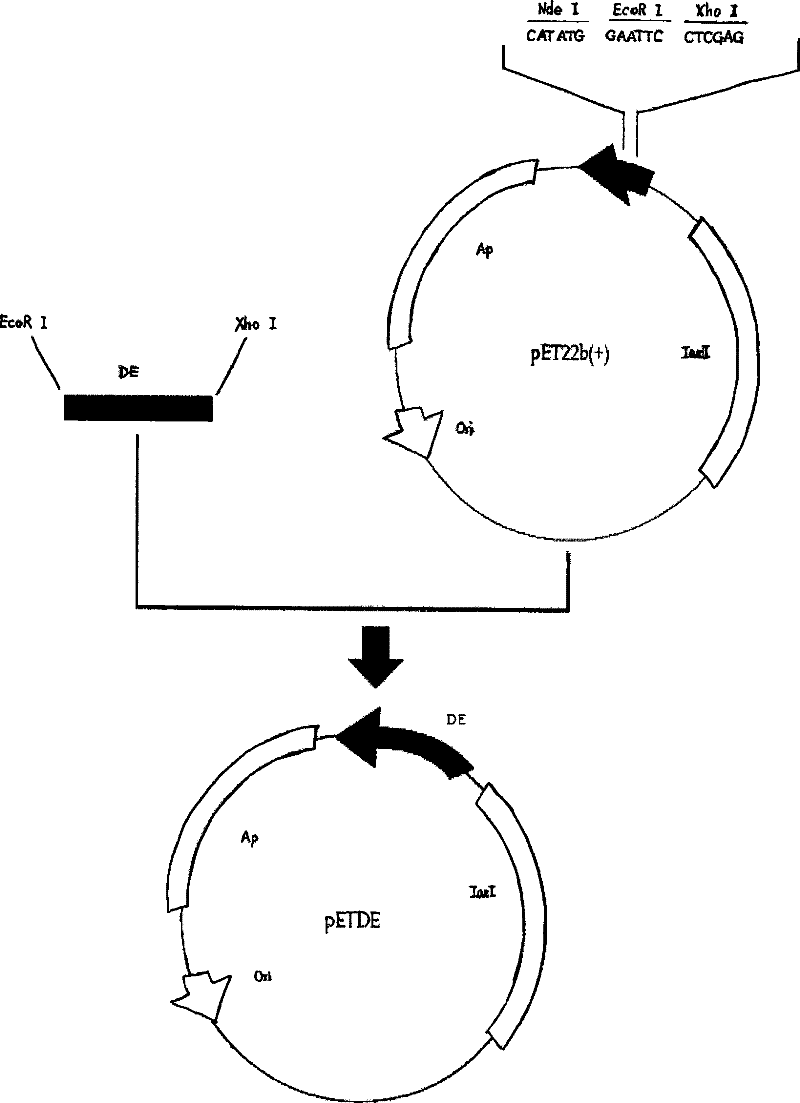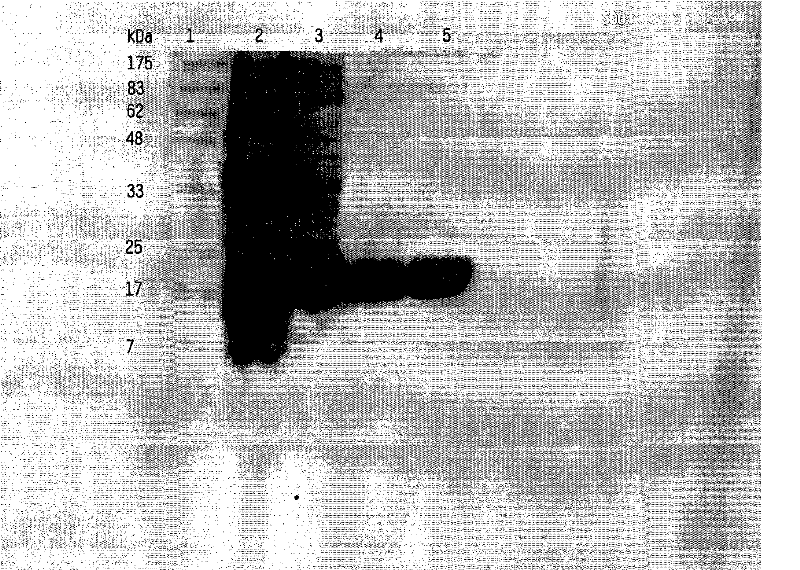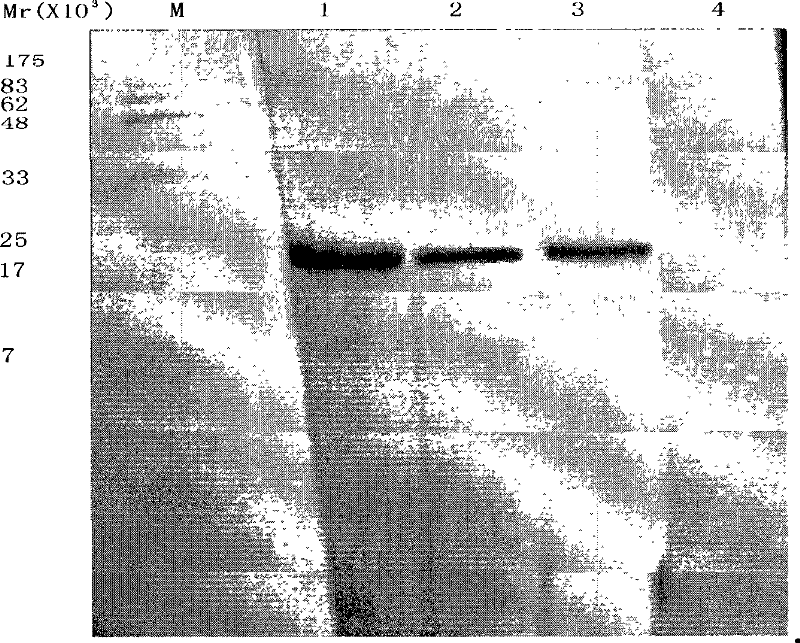Dengue virus IgM antibody ELISA diagnostic kit
A technique for dengue virus and immunodiagnosis, which is applied in the field of dengue virus antibody enzyme-linked immunodiagnostic kits, can solve problems such as expensive, difficult to popularize, and delayed diagnosis, and achieve the effects of easy operation, simple method, and high sensitivity
- Summary
- Abstract
- Description
- Claims
- Application Information
AI Technical Summary
Problems solved by technology
Method used
Image
Examples
Embodiment 1
[0020] Example 1: Cloning, expression and purification of dengue antigen
[0021] (1) Materials
[0022] 1. Standard strains: Dengue type 1 (Hawaii strain), referred to as D1; Dengue type 2 (NGC strain), referred to as D2; Dengue type 3 (H87 strain), referred to as D3; Dengue type 4 (H241 strain) , referred to as D4; purchased from the National Institute for the Control of Pharmaceutical and Biological Products, and preserved by the Guangdong Provincial Center for Disease Control and Prevention.
[0023] 2. Plasmid: The cloning vector BM13 plasmid was purchased from TaKaRa Company, and the expression plasmid pET22b(+) was a product of Novagen. Preserved by the Microbiology Laboratory of the Guangdong Provincial Center for Disease Control and Prevention.
[0024] 3. Bacterial strains: E. coli TOP10F′ for recipient and E. coli BL21Star for expression TM (DE3) was purchased from Invitrogen and preserved by the Institute of Microbiology, Guangdong Provincial Center for Diseas...
Embodiment 2
[0082] Embodiment two: the mensuration of reactivity of recombinant antigen to dengue virus IgM antibody
[0083] The purified extracted protein was serologically tested by indirect ELISA to determine its reactivity to dengue virus antibody-positive sera.
[0084] The antigen obtained in Example 1 was diluted at 1:500, 1:1000, 1:2000, coated on an ELISA plate, and reacted with dengue positive serum to determine the concentration of the coated antigen. The antigenic activity of dengue antigen is 1:1000.
[0085] The recombinant antigen was coated at a selected concentration, and the dengue virus isolation positive and dengue fever epidemic serum IgM antibody were detected by indirect ELISA, and the reactivity of the recombinant antigen to the dengue virus IgM antibody was determined.
[0086] 1. Reactivity of recombinant antigens to virus isolation positive sera
[0087] Recombinant antigens were used to react with 16 positive samples of dengue virus isolates (13 samples of t...
Embodiment 3
[0096] Example Three: Sensitivity and Specificity of Recombinant Antigen Detection of Dengue Virus IgM Antibody
[0097] The recombinant antigen obtained in Example 1 was prepared into a dengue virus IgM antibody detection reagent (hereinafter referred to as self-developed reagent), and a large number of samples were detected with this reagent to evaluate the sensitivity and specificity of the recombinant antigen.
[0098] 1 Analysis of comparative results with imported reagents (Australia PanBio)
[0099] The positive samples D010044, D010046, D010047, D010050, D010052, D010073, D010074 in Table 1 and the 2004 dengue fever epidemic samples A040124, A040134, A040135, A040137 were all positive with the self-developed reagents, and the results were positive with the Australian PanBio dengue reagent (Dengue IgM Capture ELISA) test results were all negative, and the self-developed reagent was more sensitive than the dengue reagent of PanBio Australia for testing the serum of patie...
PUM
| Property | Measurement | Unit |
|---|---|---|
| molecular weight | aaaaa | aaaaa |
Abstract
Description
Claims
Application Information
 Login to View More
Login to View More - R&D
- Intellectual Property
- Life Sciences
- Materials
- Tech Scout
- Unparalleled Data Quality
- Higher Quality Content
- 60% Fewer Hallucinations
Browse by: Latest US Patents, China's latest patents, Technical Efficacy Thesaurus, Application Domain, Technology Topic, Popular Technical Reports.
© 2025 PatSnap. All rights reserved.Legal|Privacy policy|Modern Slavery Act Transparency Statement|Sitemap|About US| Contact US: help@patsnap.com



